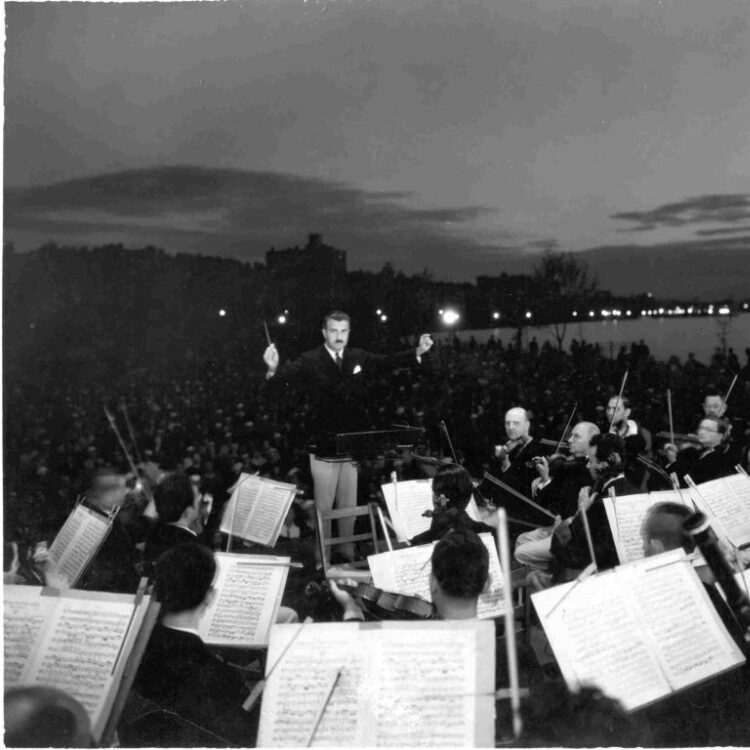Boston Pops Fireworks Spectacular
About the Boston Pops Fireworks Spectacular
-
Presenting Sponsor
![]()
Boston’s Fourth of July
More than 90 years ago, before Arthur Fiedler became Conductor of the Boston Pops, he was struck with an idea that was to transform the orchestra’s relationship to the City of Boston. He believed that if great literature was available for free in public libraries, and masterpieces of art could be viewed for a modest fee in museums, then great symphonic music should be accessible to the masses on a similar basis.
Fiedler, who was at the time a violist in the Boston Symphony, as well as a conductor of his own ensemble, set about raising funds to bring his idea to fruition. After two years, on July 4, 1929, the first free Esplanade Concert was performed at the specially constructed acoustic shell along the banks of the Charles River. The orchestra was composed of roughly half the musicians of the Boston Symphony. That first season of free concerts, which attracted more than 208,000 people, was such a resounding confirmation of Fiedler’s vision that the Boston Symphony management was swayed to sign Fiedler to a three-year conducting contract, which was only the beginning of five decades of leading the Pops, until his death in 1979.
In 1974, businessman David Mugar collaborated with longtime friend Fiedler to revitalize the July Fourth tradition, adding fireworks and cannons to the grand finale. The innovations were successful and led to what was likely the high point of Fiedler’s career: the July Fourth concert in 1976. The special bicentennial event attracted more than 400,000 people and made the “Guinness Book of World Records” for the largest audience in the history of orchestral concerts (a record since broken with the 1998 attendance of 500,000+ and many others exceeding that figure). David Mugar, who served as event founder and executive producer until 2016, personally funded the event until 2000 and created Boston 4 Celebrations Foundation (B4), which served as the production arm of the live event and television broadcast. B4 was responsible for securing sponsorship deals, as well as a 10-year deal with CBS, bringing the event to millions as a primetime network special. The baton was passed in 2016, when Mugar retired and the Boston Pops took over leadership and management of the event and television broadcast.
In 2017, the Pops opened a new page in its history with the first self-produced Boston Pops Fireworks Spectacular. The upcoming two years (2025, 2026) will continue the legacy of this exceptional event, celebrating important regional and national milestones. This includes Keith Lockhart’s 30th anniversary as Maestro of the Pops in 2025 and the 250th Anniversary of United States Declaration of Independence in 2026.
History of the Boston Pops
History of the Boston Pops

